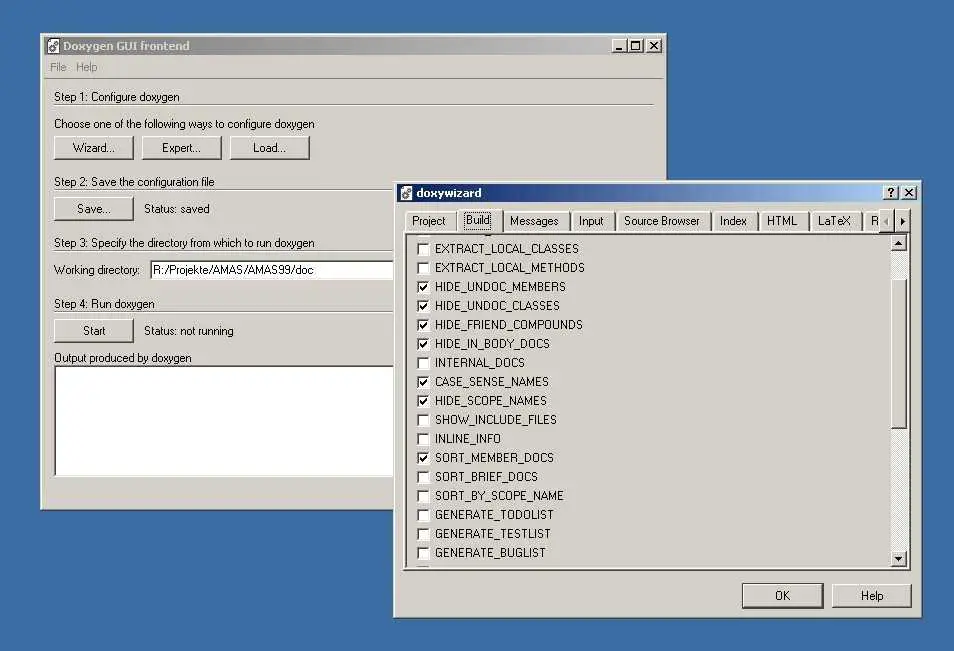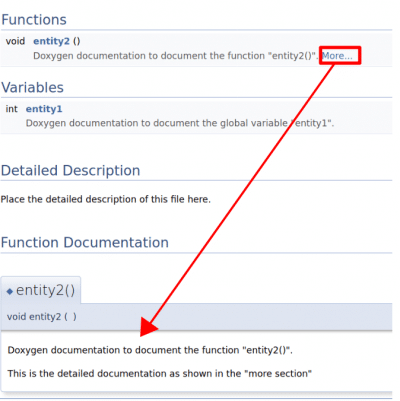

Since Ubuntu 20.04 or Debian 11 $ sudo apt-get install libopencv-dev libx11-dev liblapack-dev libeigen3-dev libv4l-dev libzbar-dev \.Installation of recommended 3rd parties could be performed running: libv4l to grab images from usb or analogic cameras.libdc1394 to grab images from firewire cameras.lapack and eigen to benefit from optimized mathematical capabilities.libX11 to be able to open a window to display images.We recommend to install the following 3rd parties:
#INSTALL DOXYGEN HOW TO#
Later, if you realize that a third-party library is missing, you can still install it, go back to the build folder, configure ViSP with CMake to detect the newly installed third-party library and build ViSP again as explained in How to take into account a newly installed 3rd party. It is therefore possible to skip in a first time this section and start directly to Quick ViSP installation. But obviously in this case, as we do not want to reinvent the wheel, some features implemented in third-party libraries will not be exploitable through ViSP. Note ViSP can be used without any third-party since all of them are optional. ViSP is interfaced with several optional 3rd party libraries. You can later come back to the Advanced ViSP installation. To have a trial, just jump to Install ViSP data set before running some binaries that you just build or jump to Next tutorial.

In this section, we give minimal instructions to build ViSP from source just to try ViSP without entering in Advanced ViSP installation. In a terminal, run: $ echo "export VISP_WS=$HOME/visp-ws" > ~/.bashrc This workspace is here set to $HOME/visp-ws folder, but it could be set to any other location. This can be achieved running: $ sudo apt-get install build-essential cmake-curses-gui git subversion wgetįirst create a workspace that will contain all ViSP source, build, data set and optional 3rd parties. Prior to build and install ViSP from source, you may install GNU g++ compiler, CMake, git and subversion. Note Concerning ViSP installation, we provide also other Tutorials. These steps have been tested with Ubuntu 16.04 64bits LTS, 17.04 64bits, 18.04 64bits LTS, 18.10 64bits 20.04 64bits LTS and Debian 9.6.0 64bits distributions, but should work with any other distribution as well. In this tutorial you will learn how to install ViSP from source on Linux Ubuntu.


 0 kommentar(er)
0 kommentar(er)
